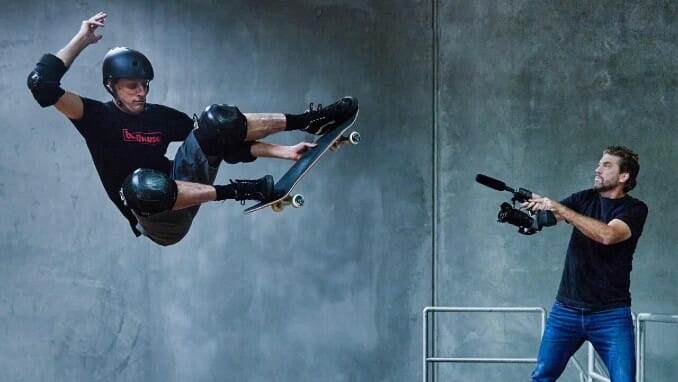Tony Hawk: Until the Wheels Fall Off Is a Reckoning of Passion

Sometimes, the things that we struggle with can be our salvation. There’s a crazy calm in that chaos, the frantic and frenzied quest to “get it right,” whatever it may be. It takes time, but when you find the thing that demands all of your focus, your dedication to it can catapult you to new heights—but it can also permanently change you for the worse, too, whether or not you want to fully acknowledge it. So goes the story of Tony Hawk, famous to most for his name being before the words “Pro Skater” (the title of his legendary videogame series). The prolific athlete is the best-known and most accomplished skateboarder in the world, and his career has been a storied journey to greatness. As with a lot of famous people and their crafts, the general public only really knows half the battle in Hawk’s quest to conquer the art of skateboarding. They don’t know the toll this life, and the deep devotion within it, has taken on the skater’s mind, body and emotions of his loved ones. That’s where Tony Hawk: Until the Wheels Fall Off comes in. Tony Hawk: Until the Wheels Fall Off is a reckoning of passion told by those who best understand the price of that love story: Hawk, his loved ones and his peers on the board.
The new HBO Max documentary from director Sam Jones follows Hawk’s career from his small-fry childhood to his competitive skater days to his world-champion, biggest-in-the-game dominance to now. It is a fully-fledged journey through the athlete’s hopes, dreams, fears, obstacles and reflections. The film relies on the typical documentary stylings—never-before-seen archival footage, photographs and new first-hand interviews with the subject and others important to his story—but it’s a major asset to this film even if the tactic might seem tired in others. Despite knowing my fair share about early skate culture, especially in the ‘70s and ‘80s when it was really discovering itself and what it would become, the typical docu-methods used in this film felt less stale and overused to me than they might have without a prodigal story to build on. The never-before-seen footage of Hawk trying his hand at different ramps and bowls throughout his childhood and adolescence is exciting at its base in the same way that it’s exciting to watch a sport you love. But when you add in the fact that you’re watching a legend at his inception, it makes the clips that much more incendiary. They feel like they’re on fire while you watch them, and the accompanying interview commentary that walks you through Hawk’s emotional and physical struggles on and off the board throughout his come-up only adds to the rush of excitement you feel watching him become a master of his field.
The interviews are particularly enlightening as they narrate the trajectory of the film. Hawk isn’t afraid to speak frankly about what brought him to where he is today—particularly, a feeling of alienation and otherness in his childhood that skateboarding helped placate through the Bones Brigade, a childhood team he was a part of—or about the state of his body after years and years of hard impact on ramps and concrete. He’s also not afraid to get emotional and vulnerable and introspective. Neither are his peers. Guys like Lance Mountain and Rodney Mullen open up to an incredible degree regarding not only the reality of Hawk’s life in his 50s and the consequences of his success, but also about their own toxic love affairs with the sport. Their passion, much like Hawk’s, shines brightly. Hawk and his contemporaries are quick to remind you that they are disciples of the board to the end, but you don’t need them to tell you that to know it. It’s lovely and warm to watch, even in its harshest confrontations and contemplations.
-

-

-

-

-

-

-

-

-

-

-

-

-

-

-

-

-

-

-

-

-

-

-

-

-

-

-

-

-

-

-

-

-

-

-

-

-

-

-

-








































